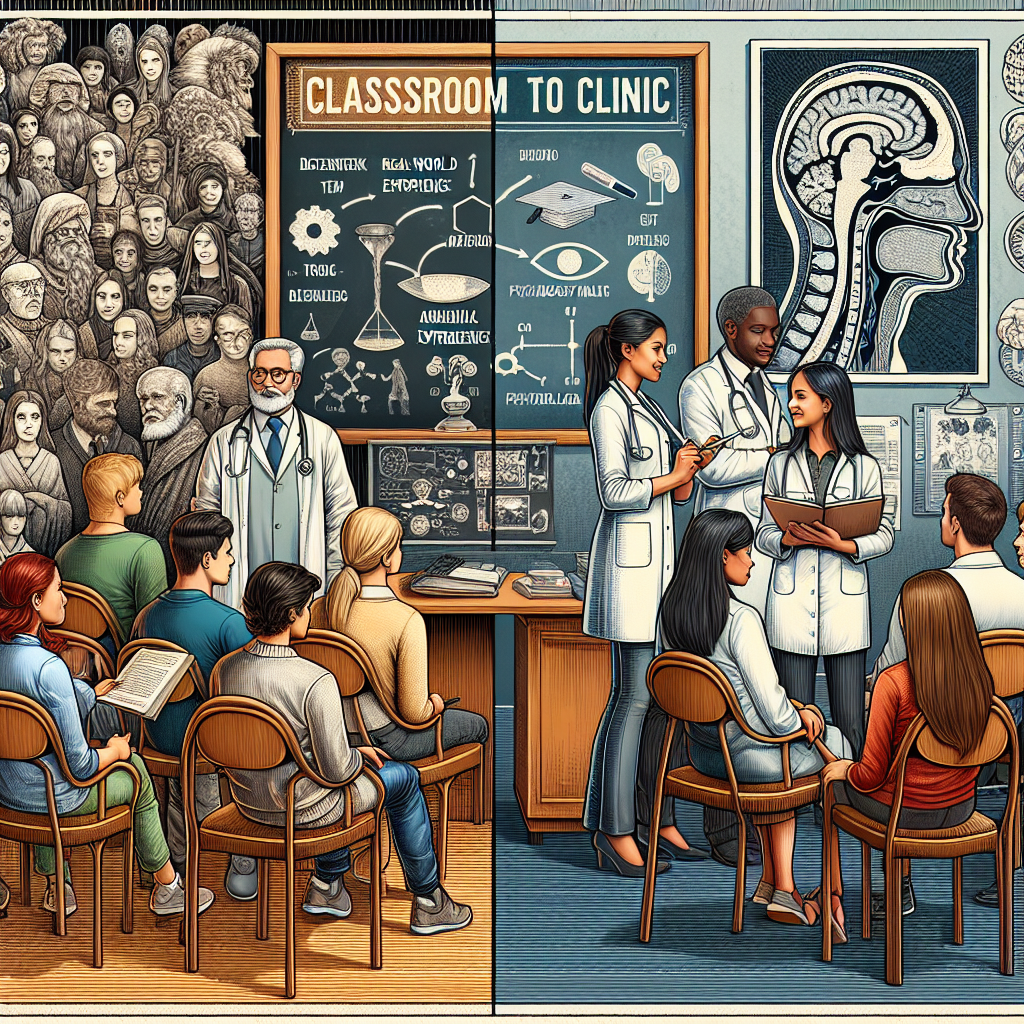
Introduction
Imagine being in a classroom, thick textbooks surrounding you, discussing theories of the human mind, when suddenly you get a chance to immerse yourself in the real world. This transformative leap—from classroom to clinic—is not merely an academic concept; it’s a vital pathway to becoming a competent psychology professional. Psychology internships provide invaluable, hands-on experience that can shape your career and enhance your understanding of human behavior in practical settings. In this guide, we will explore the critical role of these internships, how they bridge the gap between theoretical learning and real-world application, and how they can empower aspiring psychologists to excel in their careers.
The Importance of Psychology Internships
Theoretical Knowledge vs. Practical Experience
One of the fundamental challenges students face in psychology programs is the transition from theoretical knowledge to practical application. While textbooks and lectures provide essential foundations, they often lack the concrete experiences that intern positions can offer. Here’s how internships fill this gap:
Application of Theory: Internships allow students to apply theories and concepts learned in the classroom to real-life situations. For instance, understanding cognitive-behavioral therapy (CBT) in theory is different from implementing it with patients.
- Skill Development: Internships help students hone critical skills such as active listening, empathy, and communication—skills that are essential for any psychology professional.
Case Study: Interning at a Local Mental Health Clinic
Consider the case of Sarah, a psychology undergraduate who secured an internship at a local mental health clinic. Initially, she was intimidated by the responsibilities that awaited her, from conducting assessments to participating in group therapy sessions.
Analysis: Sarah’s experience exemplifies the transition from theory to practice. By working alongside licensed therapists, she gained insights into therapeutic techniques and learned how to handle real client situations, preparing her for a fulfilling career in psychology.
The Structure of Effective Psychology Internships
Finding the Right Internship
Navigating the various internship opportunities available can be overwhelming. Here’s a structured approach to finding the right fit:
Identify Your Interests: Reflect on your specialization areas—clinical psychology, counseling, social work, etc.
Research Potential Placements: Look for clinics, hospitals, or community organizations that align with your interests.
- Networking: Connect with faculty, alumni, or professionals in the field. Their insights can steer you toward valuable opportunities.
Essential Components of a Quality Internship
A quality psychology internship typically includes the following elements:
Mentorship: Having a mentor can significantly enhance the internship experience, offering guidance and support.
Diverse Responsibilities: A well-structured internship will provide a variety of tasks, from administrative responsibilities to patient interaction.
- Feedback Mechanisms: Regular feedback from supervisors helps interns evaluate their performance and areas for improvement.
Table: Comparison of Internship Structures
| Aspect | Quality Internship | Less Effective Internship |
|---|---|---|
| Mentorship | Available | Limited or absent |
| Diverse Responsibilities | Varied tasks | Monotonous, repetitive tasks |
| Feedback | Regular performance reviews | Infrequent or no feedback |
| Engagement | Active participation in sessions | Observational only |
The Impact of Psychology Internships on Career Development
Building Professional Networks
Internships offer exceptional opportunities for networking. Connections formed during this period can lead to job offers, mentorships, and collaborations in research and practice.
- Case Study: Jack’s Journey in a School Setting
Jack, an internship holder at a high school counseling center, was able to connect with educational psychologists and counselors. Through these connections, he not only expanded his professional network but also received job offers upon graduating.
Analysis: By engaging with experienced professionals, Jack established himself early in his career, highlighting the networking benefits inherent in internships.
Enhancing Resumes and Job Prospects
An internship on your resume can set you apart from other job applicants. Employers often prefer candidates who have practical experience alongside their academic qualifications.
- Table: Internship Impact on Job Applications
| Experience Level | Employer Preference |
|---|---|
| Only Academic Degree | 36% |
| Academic Degree + Internship | 62% |
Cultivating Confidence and Professionalism
Stepping into a clinical environment can be a nerve-wracking experience for many students. Yet, nothing builds confidence like real-world experience. Internships help:
- Cultivate a sense of professionalism.
- Encourage self-reflection and personal growth.
- Boost communication skills with clients and colleagues.
Challenges Faced During Internships
Balancing Academics and Internships
One common error that students make is not effectively balancing their academic workload with their internship responsibilities.
- Insights: Good time management and prioritization strategies are key. Many interns find that maintaining a planner can help them manage their schedules more effectively.
Dealing with Emotional Stress
Interns often encounter emotional challenges as they engage with clients dealing with difficult life situations. This can lead to emotional fatigue.
- Case Study: Emily at a Crisis Center
Emily interned at a crisis hotline and found herself overwhelmed by the emotional weight of the calls she received. But with guidance from her supervisor and support from fellow interns, she learned coping strategies and self-care techniques that helped her manage her stress and continue helping others effectively.
Analysis: Emily’s experience underscores the importance of support systems during internships, enabling interns to perform at their best while maintaining emotional health.
Making the Most of Your Internship Experience
Setting Clear Goals
Before starting your internship, it’s vital to set both short-term and long-term goals. Here are some examples:
Short-term goals:
- Learn specific therapeutic techniques.
- Improve communication skills with clients.
- Long-term goals:
- Build a professional network.
- Gain insights into a particular area of psychology.
Seeking Feedback and Mentorship
Regular interaction with your supervisor to discuss your progress can be highly beneficial. Constructive feedback helps you understand your strengths and areas needing improvement.
- Best Practice: Schedule bi-weekly one-on-one meetings with your mentor to discuss your experiences, challenges, and learning objectives.
Reflective Journaling
Maintaining a reflective journal can enhance your learning process. Documenting experiences, emotional responses, and key insights will not only aid in learning but also help in future interviews.
Conclusion
Transitioning from classroom to clinic is more than just a rite of passage for aspiring psychologists; it’s a profound journey of growth, skill development, and professional empowerment. Psychology internships provide the crucial connection between academic knowledge and practical experience. They equip students with the tools necessary to navigate real-world challenges and build a solid foundation for their careers. As you embark on your internship journey, remember to embrace every moment, learn diligently, and build connections. Your future as a psychology professional starts here!
FAQs
1. How can I find a psychology internship?
You can find an internship by contacting local mental health facilities, universities, or online job platforms that specialize in internships. Networking can also open doors to valuable opportunities.
2. What should I expect during an internship?
Expect to perform various tasks, from administrative duties to direct client interactions. Each internship is unique, so you may have different responsibilities depending on where you work.
3. How can I prepare for my internship?
Preparation involves researching the organization, setting personal goals, and gathering resources that may help you during your internship experience.
4. Are unpaid internships worth it?
While unpaid internships may pose a financial challenge, they can offer invaluable experience and networking opportunities that could lead to future employment.
5. What if I am overwhelmed during my internship?
If you feel overwhelmed, don’t hesitate to speak with your supervisor or mentor. They can provide guidance and support and help manage your workload more effectively.
By delving into internships, students can transition seamlessly from the classroom to the clinic, equipped with the knowledge and skills necessary to thrive in their future careers. Embrace this incredible opportunity and get ready to embark on a rewarding journey in psychology!

















